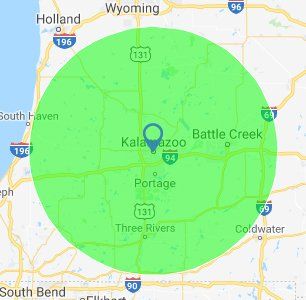Supporting copy for the Request Service
call out button.
Generator Maintenance
We light the Way
Smart Generator Maintenance
Helping You Sleep Easier at Night
A generator that sits for a while is going to need maintenance. It's just the nature of all mechanical things. Make sure your generator is ready to run when the worst happens with maintenance provided by Beacon Electric. You'll be able to sleep easier at night knowing that our master electricians have prepped your generator to run at a moment's notice.
Our services include:
- Oil changes
- Scheduled maintenance
Ensure Your Generator Is Always Ready
A generator can last for decades but it will require regular and proper maintenance. Eating healthy and exercising is a great way to maintain your good health. And just like people, a generator needs maintenance to prevent it from breaking down. Without maintenance, your generator won't function as long and as well as it should. Extensive and expensive repairs may also be needed with the worst case scenario being a complete replacement of the entire unit.
Read the seven tips below to find out what you can do to prevent a breakdown.
1. Purchase a warranty or backup generator
Purchasing a warranty might be the best thing to protect yourself in the event your generator fails. Make sure you fully understand the coverage options, as some warranties can be full while others may just offer partial coverage. A backup generator can help control your home insurance costs as well.
2. Invest in a cover or an enclosure
Electrical components can be highly susceptible to water. The slightest rainfall has the potential to damage an expensive part. Depending on whether your generator is a standby model or portable, you'll want to protect it with either a cover or an enclosure. Another option would be to have a small garage built for your generator - something that is similar to that of a doghouse for a portable generator.
3. Prevent motor burnout
Using heavy-duty cords for less voltage can prevent premature burnout. Lighter cords with higher voltage are more at risk for burnouts. And because generators are noisy, you might be better off investing in a longer cord (and a greater distance) for uninterrupted sleep.
4. Power up your generator every three months
Manufacturers recommend running generators every three months for about 30 minutes. This allows the battery to charge for the electric starter. You don't want to be left hanging when the power is out due to a non-working starter.
5. Fill up your tank
Keep your tank filled with gas to avoid damage to your generator. When a generator runs out of gas, it stops power while the electrical load in your home will continue to deplete the magnetic field from the generator itself.
6. Keep oil and filters plentiful
Keep a supply of oil and filters on hand. The last thing you want to be doing during a power outage is, shopping for oil or filters.
7. Do your homework
You don't want to purchase a generator that will exceed the maximum capacity that your generator is able to put out. Before buying a generator, you will want to read the ratings to confirm the higher maximum or starting rating or the rated or continuous watts. If you purchase a generator for the higher power level, it will only work for a short time and at that level. But at the end of the day, that generator won't extend its running capacity, and you will likely be looking for a more reliable unit.
A generator can be a true lifesaver during prolonged power outages. And when you take care of your generator, it will give you peace of mind for years to come! For more information or for a FREE consultation, please contact us
today.
FREE Estimates on Installations!
Call 269-381-8122
Our licensed and insured business has been providing complete electrical services to the Kalamazoo area since 1984. We put our experience to work for you!
Angie's List Super Service Award Winner
(2012 - 2017)
(2012 - 2017)

Privacy Policy
| Do Not Share My Information
| Conditions of Use
| Notice and Take Down Policy
| Website Accessibility Policy
© 2025
The content on this website is owned by us and our licensors. Do not copy any content (including images) without our consent.
